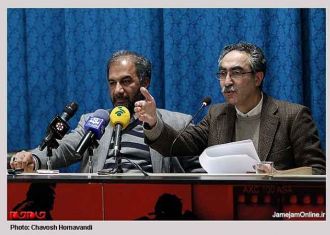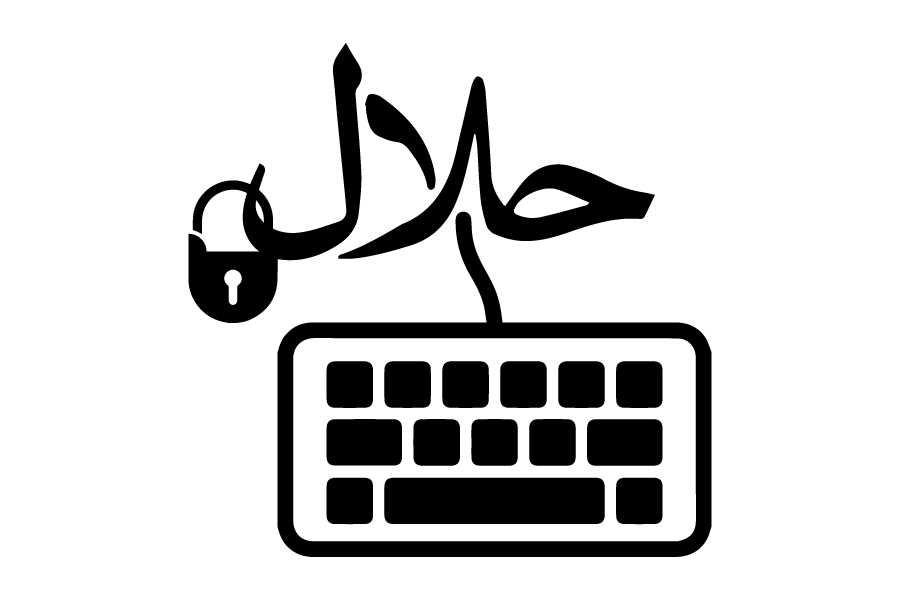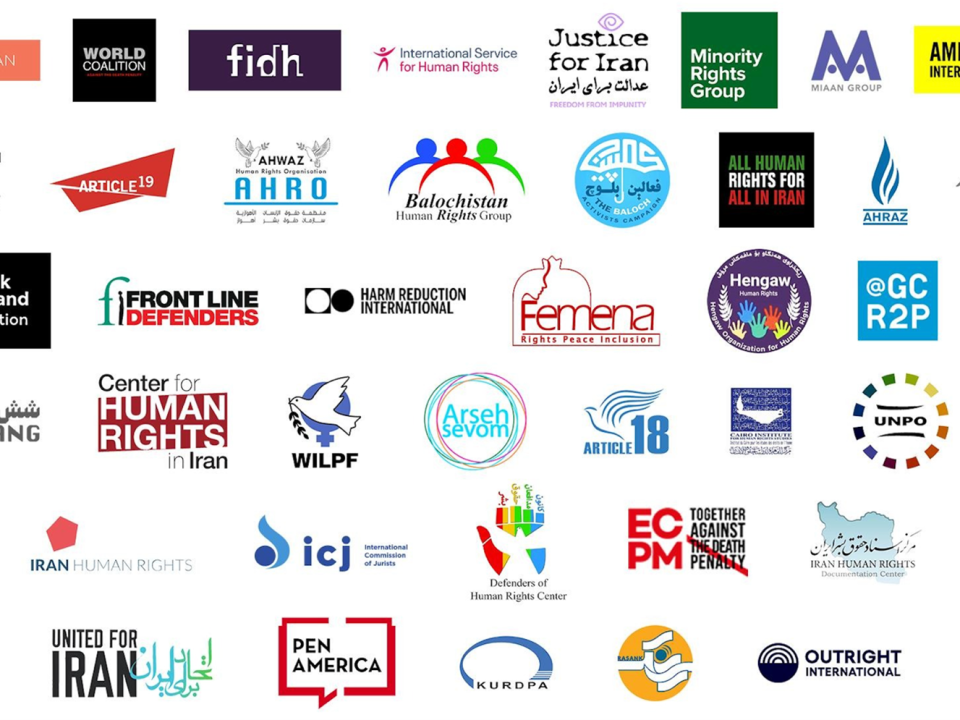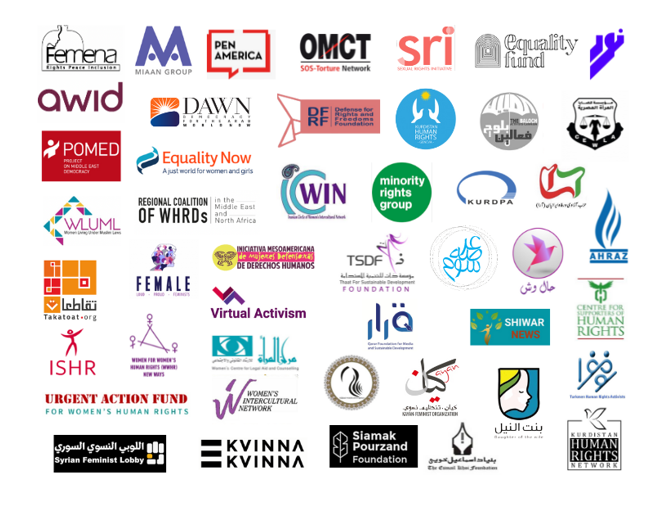
Jan 4 — Iran’s House of Cinema Ordered Closed
January 4, 2012
How do you sanitize the Internet?
January 5, 2012New Bill Defies International Community and Iran’s own Commitments on Human Rights Protection
The UN Secretary General, the UN Special Rapporteur on the Situation of Human Rights in Iran, the UN General Assembly, and the UN Human Rights Council have repeatedly called on Iran to revise its penal code to adhere to international human rights standards. In February 2010, the Iranian government accepted specific recommendations made under its Universal Periodic Review to ensure that its laws were in conformity with the International Covenant on Civil and Political Rights (ICCPR) to which it is a party.
Nonetheless, today, Iran’s parliament is preparing to pass the “Islamic Penal Bill” – legislation that flouts its legal obligations under the ICCPR. The legislation endangers free expression and reinforces laws that violate the rights of Iranian citizens. The bill fails to prohibit stoning, lashing, and other cruel, inhumane, and degrading punishments; redress discriminatory laws; or, raise the age of majority for girls and boys. In a particularly worrisome clause, the bill expands punishment for “actions against national security”, a charge that has routinely been used to persecute dissidents.
Arseh Sevom and United4Iran urge you to send letters protesting the bill. Click here [link] to join the campaign.
A review of the bill (pdf in Persian) by Justice for Iran raises the following serious concerns:
- Sexual relations outside of wedlock and extramarital affairs remain criminalized. The new bill does not proscribe stoning as a punishment and gives judges free reign to cite religious interpretations of the law, which allows them to continue using stoning and other harsh punishments. The bill states:
“The judge is duty bound to make all efforts to find the proper sentence in the codified laws. If he fails to do so he should issue the sentence in accordance with the valid Islamic sources or valid fatwas [ed: precedents based on interpretations of the law by recognized religious figures]. The judge cannot use the absence or insufficiency or brevity or conflict of the codified laws as an excuse to refuse to issue a verdict.”
- This bill allows for the execution of minors. Only minors who can prove they lack the mental ability to understand their actions and the prohibitions will be exempt.
- Several articles increase the severity of punishment for “action against national security.” This is one of the most commonly used charges against dissidents, human rights defenders, and members of the Baha’i community.
- The new bill reinforces inequalities among citizens and fails to redress discriminatory laws against women and religious minorities.
- The value of a woman’s testimony remains half of that of a man.
- Girls will continue to be treated as adults from the age of nine and boys from the age of fifteen in the case of criminal activity.
- Muslim women will continue to receive half the compensation for damages as Muslim men. Non-Muslim women will receive even less, with the damages awarded only a quarter of those awarded to a Muslim man.
- Same-sex sexual relations remain criminalized. Punishments can range from one hundred lashes to execution.
To review the bill before the Iranian Parliament (in Persian), please click <here.
Tell Iranian Parliamentarians to reject this anti-human rights bill!
Send a letter today! >>
از مجلس ایران بخواهید تا لایحه مجازات عمومی ضد حقوق بشری را رد کند
لایحه جدید جامعه بین المللی را به چالش می کشد و برخلاف تعهدات ایران مبنی بر پاسداشت حقوق بشر است
 دبیر کل سازمان ملل، گزارشگر ویژه سازمان ملل درباره وضعیت حقوق بشر در ایران، مجمع عمومی سازمان ملل، و شورای حقوق بشر سازمان ملل یکصدا از حکومت ایران خواسته اند که در لایحه جدید مجازات عمومی تجدید نظر کرده و به موازین بین المللی حقوق بشر احترام بگذارد. در ماه فوریه سال ۲۰۱۰ میلادی، در چهارچوب بازبینی های دوره ای، حکومت ایران توصیه های شورای فوق از سازمان ملل برای هماهنگ کردن قوانین جاری کشور با میثاق بین المللی حقوق سیاسی و مدنی (ICCPR) را پذیرفت، ¬– میثاقی که ایران نیز در آن عضویت دارد.
دبیر کل سازمان ملل، گزارشگر ویژه سازمان ملل درباره وضعیت حقوق بشر در ایران، مجمع عمومی سازمان ملل، و شورای حقوق بشر سازمان ملل یکصدا از حکومت ایران خواسته اند که در لایحه جدید مجازات عمومی تجدید نظر کرده و به موازین بین المللی حقوق بشر احترام بگذارد. در ماه فوریه سال ۲۰۱۰ میلادی، در چهارچوب بازبینی های دوره ای، حکومت ایران توصیه های شورای فوق از سازمان ملل برای هماهنگ کردن قوانین جاری کشور با میثاق بین المللی حقوق سیاسی و مدنی (ICCPR) را پذیرفت، ¬– میثاقی که ایران نیز در آن عضویت دارد.
به رغم این پیشرفت، مجلس ایران طرحی موسوم به «لایحه مجازات اسلامی» را در دست دارد که، در صورت تصویب، تعهدات ایران را در چارچوب میثاق بین المللی حقوق سیاسی و مدنی را زیر پا خواهد گذاشت. لایحه فوق آزادی بیان در جامعه مدنی را بیش از پیش مورد تهدید قرار خواهد داد و قوانین ناقض حقوق شهروندان ایرانی را تقویت خواهد کرد. در این لایحه سنگسار، شلاق و دیگر مجازات های بی رحمانه، غیر انسانی و تحقیرآمیز همچنان جنبه قانونی خواهند داشت، قوانین تبعیض آمیز کنونی حفظ خواهند شد و سن مسئولیت کیفری برای دختران و پسران افزایش نخواهند یافت. علاوه بر این مسئله، در یک بخش نگران کننده دیگر از لایحه فوق مجازات «اقدام علیه امنیت ملی» نیز تشدید شده، اتهامی که به طور معمول برای سرکوب و بدرفتاری با معترضان دستمایه حکومت قرار گرفته است.
“عرصه سوم” و “اتحاد برای ایران” از شما می خواهند تا به مقامات ایرانی نامه بفرستید و به لایحه جدید اعتراض کنید. اینجا را کلیک کنید تا به این کمپین بپیوندید.
مرور مفاد این لایحه نگرانی جدی ایجاد می کند، برای نمونه:
• رابطه جنسی خارج از پیوند زناشویی و میان دو نفر متأهل کماکان جرم محسوب می شود. اما به رغم آنکه این لایحه مجازات سنگسار را پیش بینی نکرده، به قاضی این آزادی را می دهند که قرائت های مذهبی از قانون داشته باشد، که به معنای آن است که قاضی همچنان خواهد توانست از سنگسار و دیگر مجازات های سخت استفاده کند. لایحه فوق تصریح می کند:
«قاضی موظف است کوشش کند حکم هر دعوا را در قوانین مدونه بیابد و اگر نیابد با استناد به منابع معتبر اسلامی یا فتاوای معتبر حکم قضیه را صادر نماید و نمی تواند به بهانه سکوت یا نقص یا اجمال یا تعارض قوانین مدونه از رسیدگی به دعوا و صدور حکم امتناع ورزد.»
• این لایحه اعدام کودکان را مجاز می داند. تنها کودکانی که امکان احراز مشکل ذهنی در ایشان میسر باشد، از این قانون مستثنی خواهند بود.
• در چندین اصل از لایحه یاد شده، مجازات «اقدام علیه امنیت ملی» تشدید شده است. این اتهامی است که به طور مکرر علیه مخالفین، فعالین حقوق بشر و شهروندان بهایی به کار گرفته شده است.
در این لایحه نه تنها هیچ کدام از قوانین تبعیض آمیز کنونی علیه زنان و اقلیت های مذهبی بدون اصلاح باقی مانده، بلکه به نابرابری های فعلی نیز دامن زده شده است:
• شهادت زن در برابر دادگاه کماکان به اندازه نصف شهادت مرد ارزش دارد.
• همچنان یک دختر از سن ۹ سالگی مسئولیت کیفری خواهد داشت و در صورتی که مرتکب جرمی شود مانند بزرگسال با او رفتار می شود. این لایحه سن مسئولیت کیفری برای پسران را ۱۵ سالگی تعیین کرده است.
• ارزش خسارات جانی وارده (دیه) زن مسلمان کماکان نصف دیه مرد مسلمان محاسبه می شود. دیه زن غیرمسلمان نیز نصف دیه یک زن مسلمان، و یک چهارم دیه یک مرد مسلمان است.
• رابطه جنسی دو فرد همجنس جرم تلقی شده و مشمول مجازاتهای شدیدی از صد ضربه شلاق تا اعدام می شود.





